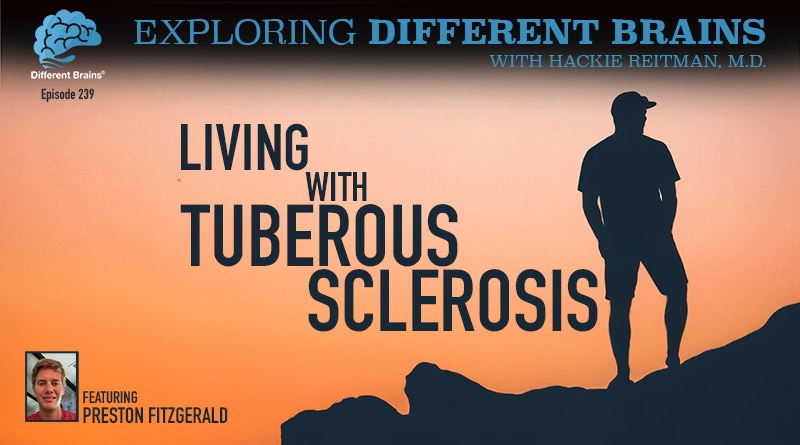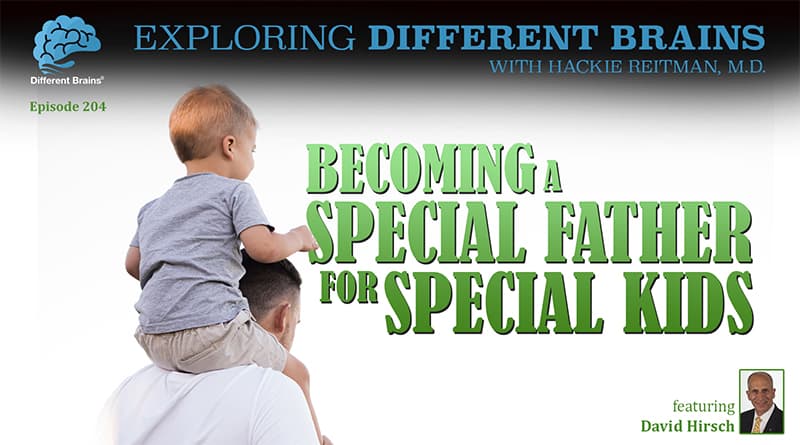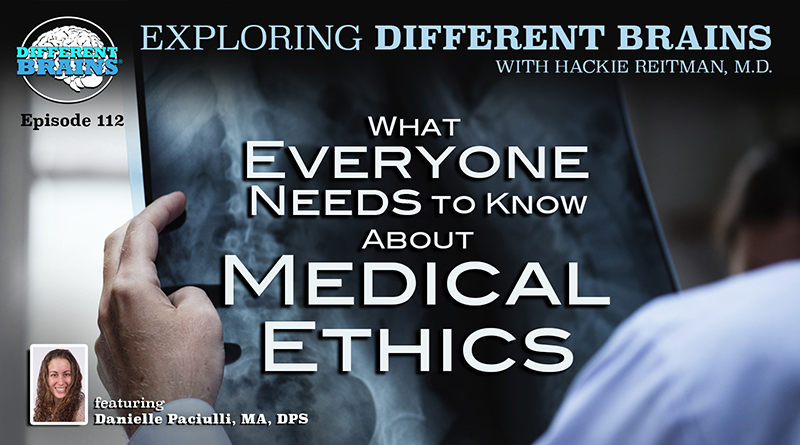Where Neurodiversity Meets Racial Diversity, with Pierre Marsh | EDB 130
(18 mins) In this episode, Dr. Hackie Reitman continues his conversation with author and neurodiversity advocate Pierre Marsh. Pierre is also a Senior Mediator specialist in Employment and Discrimination at Marsh Mediation Practice. Pierre discusses his thoughts about the ties and similarities of neurodiversity and racial diversity, and highlights the importance of ending stigma.
Pierre’s LinkedIn: https://www.linkedin.com/in/pierre-marsh-10118b19/
.
To listen or download the podcast version of this episode, see the embedded player below.
Or look for us on your favorite podcast provider:
iTunes | Stitcher | SoundCloud
HACKIE REITMAN M.D. (HR): Hi, I’m Hackie Reitman. Welcome to another episode of Exploring Different Brains. Today, we have returning to us, Pierre Marsh, who is writing a book about dyslexia, who’s doing so much advocation for neurodivergence and neurodiversity. Pierre, welcome back to Different Brains.
PIERRE MARSH (PM): Hi. How you doing?
HR: I’m of the opinion, which I have taken some criticism for that labels are a lousy way to describe a human being. Some of the well intentioned leaders and people say “Well, how are you going to give them the resources they need? What are you going to do?” So, I find sometimes that advocates like you, organizations like differentbrains.org, we’re trying to get rid of the stigma so that everybody can feel comfortable saying, “Hey, I’m dyslexic but I’m going to do the job,” or “I have Asperger’s,” or you know, you name it, ADHD, the list goes on and on. But finding that ability to come out of the closet, so to speak, and say “You know, I want everyone to know I’m bipolar and I have to be on my meds and if I get off my meds, make sure you make sure I take them.” But right now, it’s like everybody’s gotta look the other way and there’s a lot of stigma involved. Tell me about stigma and labels from your perspective.
PM: Well, it’s very important and I think you hit the nail on the head. The question is functionality. How good are we doing our jobs? That to me is the most fundamental point. The second point is, it’s a question of intelligence. Right, and one of the things about neurodivergence is it is intelligence in its own right and I believe that neurodivergent people for a long time have to translate their intelligence to a neurotypical way of doing things. So the burden is absolutely immense but the intelligence grows because of that process. One of the things I think which neurodivergence has to develop into is that there was a specific way of measuring neurodivergent intelligence for neurodivergence intelligence sake. And that was a more holestic way of actually a fair amount of how people actually do things. There’s no point at the age of three, teaching a neurodivergent sequential thinking development, when all the time, their ability to create and learn and understand the world is from a holestic perspective. And so what happens is that child fails, fails, fails, fails, fails, gets the labels, gets the remedial training and then gets the low self esteem and all the time, it becomes because it’s with professionals, it becomes not a difference, it becomes articulated as a pathology. And it’s from that discourse that there was absolutely no challenge to it. And that’s why it’s so important for neurodivergent people. It’s the start from what you say. It’s not a question of looking from a issue of difference and defecit, it’s a process of identifying that there are different brains that process information differently and what we gotta do as humanity is capitalize on the whole sum of human intelligence in order so we can benefit from it because I believe we are in some what of a crisis mode where we’ve gotten so used to doing things from standard operational procedures and historically those who had quite a good working memory to remember the standard operational procedures became the bosses and the leaders , but it’s all taken us to one place, which is not giving us choice. Choice of thought, choice of creativity, and I think it’s the neurodivergent’s brain, which is the key, here to give humanity options which it hasn’t got at the moment. So it’s very important.
HR: Very well said and a natural segue to from neurodiversity into racial diversity. Now, you’re an activist also in that arena of diversity as well. Expand upon that for our Different Brains audience.
PM: What is very important, you know, one of those things about my identity and it’s very interesting what’s going on in the world, especially with what family we make at the moment. We’ve got a mixed race, black woman, many labels if you like, joining the royal family which whole idea of royalty is a bloodline which is pure and the whole notion of race and blackness was aside they were polygenesis, that there was basically two different types of human beings and they should never meet and now with we’re, you know, with the royal family, the idea that we’re forgeting this bloodline and we’re looking at now people on an equal footing and one of the things about racial theories, especially for my mixed race perspective, is that you’ve heard this idea about post modernism. While mixed race is perfect. Situated to start answering some of those questions and what post modernism means is that in the past we’ve had these grand notions about who we were and where we came from and the majority of people followed that sort of stories. So if you were conservative, what you believed in, you know, the cream always raise to the top and it was within the bloodline but you believed in the family. That you believed in leadership, that you believed in paternalism, if you believed in, you believe that, you know, it’s all up for grabs as long as you had, you know, good energy. The meritocracy society will allow the best to rise to the top, and if you believed in socialism or you believe that at the end of the day, everyone, no matter how well they did, should always make sure that the rest of society doesn’t fall behind. So these were the grand stories and within that came the grand stories of race associated. Very westernized perspective. Now as we move into the modern world, with interconnected society, interconnected business, interconnected banks. The whole idea of racial lines based on stories all getting merged, but there’s no language really to try to unpack that. So when I came through my mixed race world, basically we looked to find a new anchor, find a story, create a story, in which fits in with the modern world. And that’s really the post modernist things. And with neurodiversity, we’ve got to make sure, exactly that that’s incorporated in the body as we go forward, if we are gonna be successful at challenging some of the grand narratives and big discourses of the future. Where otherwise would be pinned in to the same racialized thinking which causes the same problems, but just in a different perspective. In this one it’ll be neurodivergence.
HR: Pierre is there anything you’d like to talk about that we have not spoken about today, that you’d like our audience to know about?
PM: What I think, what I would like to suggest to the audience of neurodivergents, I think I’d like to say to them, maybe it’s time for us to start thinking a little bit more politically about ourselves. I mean if we really are, we hear these statements like 1 in 10 of the population, let’s just say in general, then that’s a significant amount of people and we pay our taxes and we you know, contribute to society, in many many ways, and I think it might be time for us to develop you know a political language which really stops asking for understanding and saying please look at us, treat us with respect and dignity. But to start turning around and saying this difference needs to be recognized as a difference and this is the way society needs to utilize the sources to facilitate people who are different. And it’s not an apology, and it’s not a person of understanding, it’s just the fact of the human phenomena. For that to take place, neurodivergent people themselves have to think about themselves differently and have to be prepared to not just say I’m different, I’m neurodivergent, I’m dyslexic, bipolar, all these kinds of things.
HR: Well this will really cheer you up, I think, because I was recently down in Washington D.C., our nation’s capital, for the national Down syndrome society, first ever adult Down syndrome summit. The reason it was the first ever was because in the 1980s, Down syndrome people lived till about 20; now they live till 60. And what was heartening and I wrote a blog article for Dfferent Brains about this. It was really inspirational to me. I got to meet all the self-advocates who are working up on Capitol Hill, who’re going in their suits and ties and saying don’t I have a right to live. What is it with Iceland passing this law that you have to get tested for Down syndrome, and if you have it when you’re pregnant, then there must be an abortion? We’re doing this and I met so many self advocates. One of the reasons that I formed Different Brains, that I founded it, and we have so many wonderful people joining it, at differentbrains.org, is because it’s not just Down syndrome and it’s not just autism and it’s not just bipolar. It’s mental health issues. It is intellectual and developmental differences. It’s neurological Parkinson’s, and Alzheimer’s, and everything else. So we have that all under one roof and I’m trying to get all the different silos to pitch in together because hey, all the tools that work for one, work for all of our brains and our bodies too. As you said, if we’re gonna get things done, we have to unite. It’s big, big numbers. If you add up all these different silos as you pointed out. And you are right on the money that society needs to understand and embrace neurodiversity for the benefit of all of us. And one of the things is society, don’t just embrace it cause it’s the right thing; it’s good business for you. For you big companies. You know I lecture to doctors sometimes, you’re already treating ten percent of your patients, you may as well look through that prism, and give them the help they need. Teachers, employers, institutions, I’ll get off my soapbox now and give it back to you.
PM: No, you know I couldn’t agree more, but I just pushed the envelope a little further, and I think this is where it needs to go. I truly believe that humanity will end if it isn’t for the total incorporate of what has been produced of humanity. So if you try to just dissect some of it off because you have a very narrow perspective of what humanity is and how it became, like the idea of looking at the gene. Like the idea of testing me way back then for senior maladjustment. These are often proven completely incorrect, because humanity, at the end of the day, hasn’t got its act together. The most dangerous thing we face as human beings, is not the nuclear bombs, it’s not technology. It’s been proven time and time again, if human beings do not get on with each other, if they do not learn to incorporate the whole of humanity, we fight, we destroy. This is where neurodivergence has always been around. It gives the capacity for humanity to think differently about itself. In some sense, which is basically thinking the way it’s always thought about itself. For example, if I give you an analogy, a tanker would be a massive ship, needs a huge rudder to turn it, to direct it, that’s humanity. It needs a huge rudder to start turning that tanker. It takes about 2 or 3 miles to turn the tanker, but guess what’s on the big rudder, a very small rudder, which turns in the opposite direction. Without having that capacity to turn in the opposite direction, the big rudder won’t be able to turn the ship out of danger. And I believe that’s where neurodivergence is. It sits on the edges, the fringes, of humanity. Think about all the entraprenuers, think about all the people in Oxford and Cambridge for example, which are neurodiverse. This is something like 40%. People with Asperger’s, they’re focused they can’t stop doing, applying themselves to a particular problem. Think about the odds, philosophy, all of this is where neurodivergence sits. Yes, the sequential people who run the administrations and the offices, all these types of things are very important. But they all work well in conjunction with all that creativity. We stop going around and saying this gene does that, that gene does that, and we start eliminating it, so you don’t have down syndrome. Whereas the next best part might come from down syndrome, gives a good indication on where we’re going and what we’re about. That’s a danger which we face. So yes I think we offer, which is already there, in well research about the contributions that neurodiverse makes. Secondly, it goes to your point. With the Down syndrome people just mentioned. You know, don’t start looking to slowly genocide my race, through a scientific gaze, which is considered normal. You know, let Down syndrome people determine what value they have. You listen to them. You know 65 making a contribution, what that contribution is going to be, we incorporate it as the whole of society. And that’s with all of neurodivergence. And that’s why there needs to be a step change, because I believe we’ve become so reliant on computerizations systems that we’re getting to the point where we’re saying, well we all follow this direction, because one it’s convenient and it’s easy. And all those people with all those types of brains fit in well with that. And that’s the danger, we’ll lose our creativity, we’ll lose our ability to protect humanity. If you want to view a really good Ted Talk, Ken Robertson, is a professor in education. He’s got a lovely Ted Talk. And he talks about education strict mining creativity of children now. Which is almost at a crisis point, where children at three have been assessed to go into preschool, and to make sure they meet the same criteria. And where creativity and you know huge amounts of energy, has been pushed down and forgotten, we’re losing the ability to be creative. Once we’ve lost that, I believe it’s game over.
HR: Pierre, thanks again for being with us one more time here on exploring different brains. It’s been a pleasure to speak with you. I don’t know if you have your invitation to the royal wedding or not, but if you do, have a good time! And thank you so much for all you’re doing for those of us with different brains.
PM: And thank you for having me, and thank you for allowing me to express myself.




